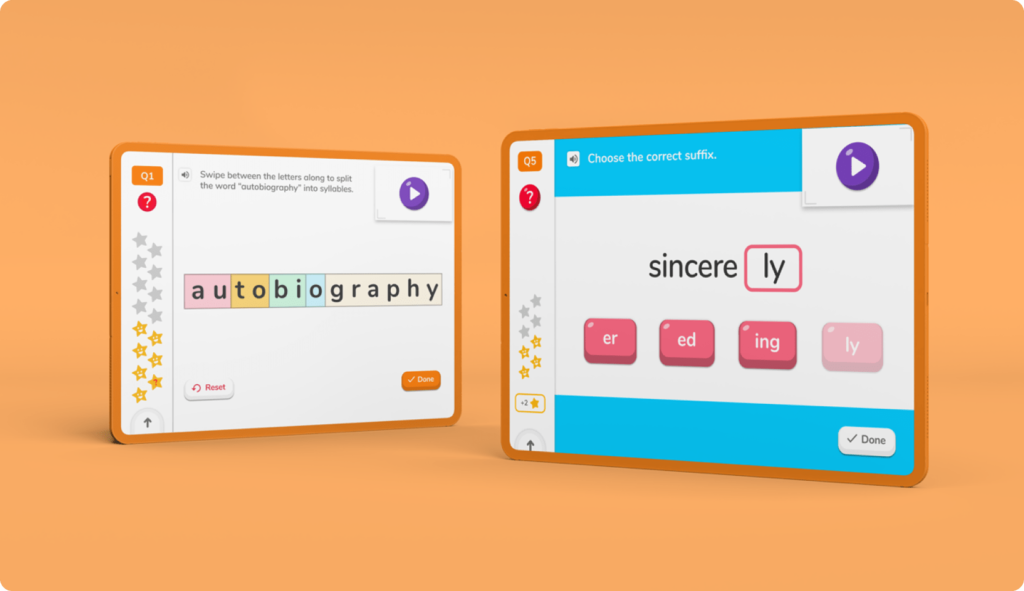Learning spellings may seem like an intimidating task, with many rules to master and challenging words to overcome. But luckily, it doesn’t have to be tricky or boring!
With this in mind, here are nine fantastic activities that’ll transform spelling practice into a fun, rewarding activity.
9 fun ways to learn spellings
1. Play word games
Word games like Scrabble, Boggle, Bananagrams and Hangman are a great way to learn spellings. They let kids practise spelling words while competing against friends or family members, and can also help to improve their vocabulary!
Not sure which game to start with? Check out our six favourite word games!
2. Complete word searches and crosswords
Word searches and crosswords are a great way to reinforce spelling skills. Plus, they can be tailored around specific topics or themes, making them a perfect activity to entertain your child or pupils. You can find lots of free ones online or even create your own!
3. Use DoodleSpell

Created by our team of teachers, DoodleSpell is an app that transforms spelling practice into a game that kids will always want to play!
Filled with thousands of fun, interactive activities that automatically adapt to each child’s level, it targets any words they’re finding tricky and tops up what they already know, ensuring continual progression through the curriculum.
Best of all, it can be used offline and is designed to be used for just a few minutes a day – and you can try it for absolutely free!
Or discover Doodle for schools
5. Write stories
Instead of using the ‘look, write, cover, check’ method to practise spellings, hand your weekly spelling list to your child or pupils and encourage them to write a short story using them. Using them in context will make them much easier to learn – plus, it’s a great way to liven up traditional spelling practice!
6. Use rhyming words
Make up silly rhymes using the words you need to learn. This will not only help kids to remember how to spell specific words, but will also make the learning process much more fun and engaging!
7. Make up mnemonics
Mnemonics are a fantastic way to learn how to spell tricky words. For example, the mnemonic ‘Big Elephants Can Always Understand Small Elephants’ can help you remember how to spell ‘because’ (B-E-C-A-U-S-E). Remember: the more silly your mnemonics, the better!
8. Create songs and chants
We all know how easily a catchy song can get stuck in your head – and the same goes for songs about learning spellings!
Create a tune or chant using the words your child or pupils need to learn. Once you’ve created the lyrics, sing it to your kids and encourage them to join in. Once they’ve memorised the lyrics, they’ll be able to spell even the trickiest of words!
9. Use visual aids
Finally, flashcards and posters are another fantastic way to help children remember how to spell words – particularly more challenging ones.
Ask your child or class to create a poster with the word they find most tricky to spell at the centre, making it really colourful and including any rhymes, mnemonics or tips to help them remember it. Then, hang it on the wall and encourage them to take a look at it whenever they need some guidance.
In summary…
Learning spellings doesn’t have to be tricky. Whether it’s playing word games or creating silly rhymes, the key is to make spelling practice as fun and interactive as possible. With the right approach, children can enjoy the learning process and boost their spelling skills in no time at all!
Looking for more fun ways to learn spellings? Be sure to give DoodleSpell a try. Going well beyond teaching spellings, it’s games and exercises also explore the meaning behind them and how they’re used in sentences – and you can try it for free!
Or discover Doodle for schools





